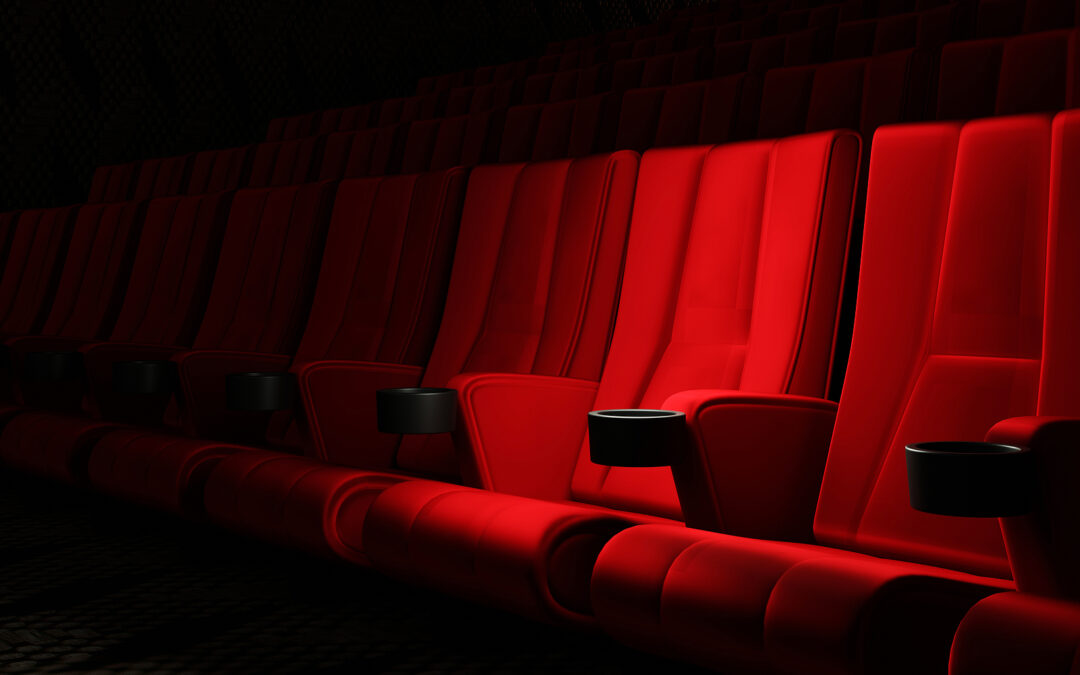While going to the movie theater is a favorite pastime for many of us, it can be hazardous for hearing health. Loud noise is a common cause of hearing loss, the third most pervasive health condition people experience today. Nearly 1 in 6 people (over 48 million) live with hearing loss, a chronic condition that reduces capacity to hear and process speech as well as sound. Loud noise can irreparably damage the auditory system which is the sensory system for hearing. There are numerous activities we engage in regularly that expose us to excessive noise levels and watching loud movies is one of them. Learning about the safety measures you can practice can help you protect your hearing health and still enjoy going to the movies!
Loud Movies & Hearing Health
Sound is measured in decibels (dB) and noise that surpasses 85dB is considered hazardous for hearing health. This is equivalent to a hair dryer or busy traffic. To better understand how loud movies can get, Today conducted a study that involved identifying noise levels for movies that were playing in theaters in 2016. The study involved attending a few different films and measuring noise levels in decibels. For the movies that were playing that year, they recorded the following noise levels:
- The Magnificent Seven: this western film with gunfire reached 93.7dB and its peak noise level was recorded at 97.2dB.
- Storks: an animated feature for kids stayed under 85dB but its peak noise level was recorded at 99.3dB.
- Deepwater Horizon: this action movie contains explosions and reached 101dB with peak noise levels at 104.9dB
This data shows a few important findings: all films surpassed 85dB at some point and even reached (or exceeded) 100dB. These noise levels are dangerous for hearing health. In fact, if you’ve ever left a movie and found that it was a bit harder to hear or sounds were muffled, these are signs that you were exposed to loud noise.
Noise Induced Hearing Loss
One time or consistent exposure to loud noise can irreparably damage the auditory system. Loud noise can damage the sensory cells in the inner ear which play an integral role in how sound is processed. There are thousands of sensory cells in the cochlea which convert incoming sound waves into electrical signals. These signals get sent to the brain where they are further processed and assigned meaning to, allowing us to understand what we hear.
Loud noise can desensitize and weaken these cells which reduces their capacity to effectively process soundwaves. Unlike other types of cells we have, sensory cells in the inner ear do not regenerate. There are also no medical treatments that can repair these cells once they are damaged. This means that any damage they experience over time is permanent, resulting in chronic hearing loss. Because noise induced hearing loss is incurable, there is significant emphasis placed on prevention.
Tips to Protect Hearing Health
Noise induced hearing loss is 100% preventable. There are simple safety measures you can practice to protect your hearing health. This is especially important if you regularly watch movies and move through spaces that get noisy (like movie theaters). A few tips you can integrate include:
- Wear hearing protection: there are different types of hearing protection including headphones, earplugs, earmuffs etc. These items provide a physical barrier for the ears, reading the amount of loud noise that is absorbed. You can carry hearing protection and easily put it on when noise gets loud.
- Take listening breaks: another useful tip is to take listening breaks which involves stepping away from (or turning off) sources of loud noise. If you are watching a loud movie, you can take a break by going to grab a snack or going to the restroom. This provides your ears and brain with a break from constantly absorbing and processing loud noise.
- Reduce loud noise exposure: it’s also important to reduce your exposure to loud noise in everyday life. You can do this by maintaining low volume settings on electronic devices, avoiding places with lots of background noise, taking breaks between attending loud events (concerts, parties) etc.
- Test hearing regularly: we also recommend getting your hearing tested yearly. This allows you to monitor your hearing health and intervene early if you experience any symptoms.
Contact us to learn more about how you can protect your hearing health and still enjoy watching movies!


